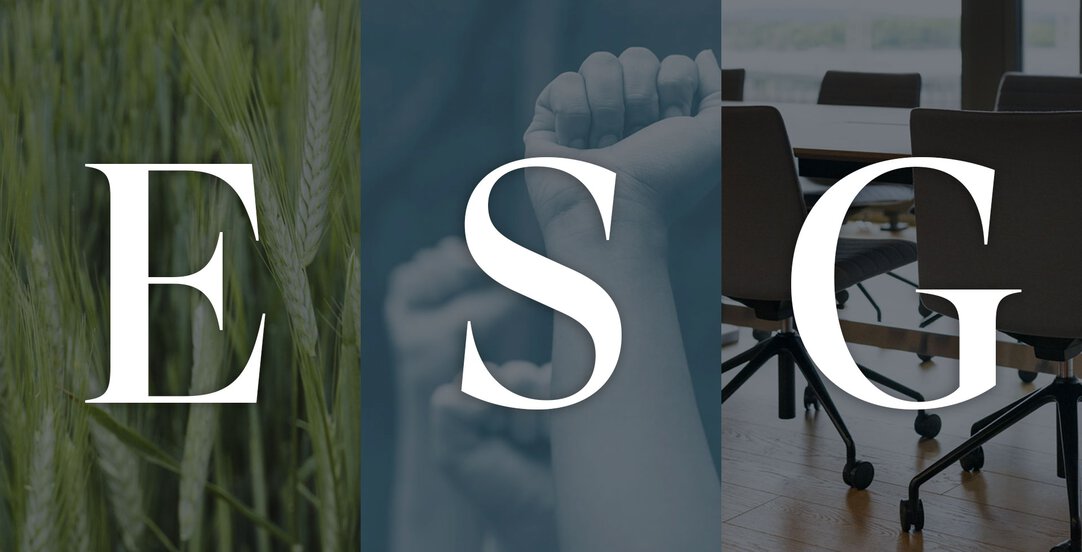WR ESG Alert

We are pleased to announce the launch of our monthly ESG alert service, where we will provide updates on key developments on topics of relevance under the ESG umbrella. The WR ESG alerts intend to offer a focused perspective on environmental and social issues, emphasising material developments and their implications. However, this may not encompass all aspects of the broader ESG spectrum and will generally not cover governance-related updates.
Lesetid 10 minutter
In this month's alert, which as a one-off also covers some developments of interest from the last few months, we report on matters such as changes to the Norwegian procurement regulations, Norwegian government consultations on a new act regarding sustainable products and value chains and a proposed EU regulation on prohibiting products made with forced labour, adoption of detailed reporting rules for the Carbon Border Adjustment Mechanism and the commencement of a criminal trial in Sweden against former oil company executives for alleged complicity in war crimes in Sudan. Other matters are also covered, so do read on for more details.
Environment
Norwegian government consultation on the incorporation of the Corporate Sustainability Reporting Directive (Norwegian)
On 4 September 2023, the deadline for the consultation on NOU 2023: 15 expired, which examines how the Corporate Sustainability Reporting Directive (CSRD) should be incorporated into Norwegian law. Compared to the current requirements for sustainability reporting (set out in the Non-Financial Reporting Directive (NFRD), incorporated into Norwegian law through section 3-3 c of the Accounting Act (Nw: regnskapsloven)), the main changes introduced by CSRD are as follows:
- Expanded Scope – More companies will become subject to reporting requirements.
- Reporting will be done using mandatory standards – EU ESRS.
- There is a requirement for more detailed content and awareness regarding methodology.
- Reporting is based on the principle of double materiality – meaning that companies need to report not only on their impact on people and the environment but also on the financial reporting in terms of how ESG factors affect the company's risks and opportunities.
- Requirement to have third-party assurance and external auditing.
- All information must be published as part of the board's annual report and disclosed in machine-readable format.
Indications from Norwegian authorities suggest a willingness for Norway to synchronise its timeline with that of the EU. This implies that CSRD could come into effect for in-scope companies in Norway as early as 1 January 2024.
Changes to the Norwegian procurement regulations – tightening requirements to consider climate and environmental concerns
On 4 August 2023, the Norwegian Ministry of Trade, Industry and Fisheries announced changes to the procurement regulation («anskaffelsesforskriften»), supply regulation («forsyningsforskriften») and the concessions contract regulation («konsesjonskontraktforskriften»). The changes relate to the duty of public contracting authorities to consider climate and environmental concerns when procuring goods, services and building and construction works.
As a general rule, contracting authorities shall give a minimum 30% weighting to climate and environmental considerations as part of their award criteria. Alternatively, climate and environmental requirements can be drawn up in the requirement specification, provided this leads to better climate and environmental effects.
The new rules do not apply to procurements that by their nature have an insignificant climate footprint and/or environmental impact. The new rules will come into effect on 1 January 2024.
Adoption of detailed reporting rules for the Carbon Border Adjustment Mechanism (CBAM)
On 17 August the European Commission adopted rules governing the implementation of the Carbon Border Adjustment Mechanism (CBAM) during its transitional phase, which starts on 1 October this year and runs until the end of 2025.
The Implementing Regulation details the transitional reporting obligations for EU importers of CBAM goods, as well as the transitional methodology for calculating embedded emissions released during the production process of CBAM goods.
In the CBAM's transitional phase, traders will only have to report on the emissions embedded in their imports subject to the mechanism without paying any financial adjustment. This will give adequate time for businesses to prepare in a predictable manner, while also allowing for the definitive methodology to be fine-tuned.
As one of the central pillars of the Fit for 55 climate legislation, CBAM is the EU's landmark tool to fight carbon leakage.
Norwegian government consultation on revisions in the Greenhouse Gas Emission Trading Act (Norwegian)
To reflect that the EU's Emissions Trading System (EU ETS) will be extended to cover emissions from ships, the Norwegian Environment Agency has launched a consultation on revisions to the Norwegian Greenhouse Gas Emission Trading Act.
The system will initially cover CO2 emissions from all large ships (of 5,000 gross tonnage and above). 50% of emissions from voyages starting or ending outside of the EU and 100% of emissions that occur between two EU ports will be covered. To ensure a smooth transition, shipping companies only have to surrender allowances for a portion of their emissions during an initial phase-in period (40% of their emissions in 2024, 70% of their emissions in 2025, and 100% of their emissions from 2026 onwards).
The system builds on the provisions in place for other EU ETS sectors, as well as the recently revised EU Monitoring, Reporting and Verification Regulation for maritime transport.
The consultation also reflects other elements related to revisions in the EU ETS. The consultation closed on 16 August 2023.
The European Parliament finalised its position on the Corporate Sustainability Due Diligence Directive
On 1 June 2023, the European Parliament adopted its position on the Directive on corporate sustainability due diligence (the CSDDD), which will introduce mandatory due diligence on human rights and environmental criteria, and a directors' duty of care. The Parliament’s position generally expands the application of the CSDDD for greater coverage, enforcement, and monitoring than the original European Commission Proposal and the Council’s position. Notably, the Parliament's position deviates from the European Commission's proposed draft of February 2022 on several points, including:
- expanding the applicability of the CSDDD to the financial sector;
- the conditions for civil liability under the CSDDD; and
- the introduction of a directors’ duty of care and its consequences.
The next step will be the interinstitutional negotiations on the CSDDD between the European Parliament, the European Council and the European Commission, with an agreement expected by the end of 2023. Once the CSDDD has been formally adopted, Member States will have two years to implement the CSDDD into national legislation.
Norwegian government consultation on a new act regarding sustainable products and value chains (Norwegian)
On 30 June 2023, the Norwegian Ministry of Climate and Environment launched a consultation on a new act aimed at reflecting several circular economy initiatives from the EU.
The European Commission's circular economy action plan was adopted in March 2020, and is one of the main building blocks of the European Green Deal. The action plan announces initiatives along the entire life cycle of products. It targets how products are designed, promotes circular economy processes, encourages sustainable consumption, and aims to ensure that waste is prevented, and the resources used are kept in the EU economy for as long as possible.
The Norwegian Government's consultation will close on 1 October 2023.
European Commission consultation on the implementation of and how to improve the EU Sustainable Finance Disclosure Regulation
On 14 September 2023, the European Commission launched a consultation on the implementation of the Sustainable Finance Disclosure Regulation (SFDR). The objective of the consultation is to identify and understand any shortcomings in the regulation, especially in relation to legal uncertainty, the regulation's useability and the regulation's ability to tackle greenwashing, with the objective to improve the framework. The consultation focuses on the following key areas:
- Entity vs. product level disclosures: the consultation asks the question of whether entity level disclosures should be moved to other, more appropriate, regulations, e.g. the CSRD and CRR.
- Product level disclosures: the consultation is seeking views on the current disclosure requirements, as well as whether additional types of disclosures could be required (e.g. Taxonomy related disclosures).
- Uniform disclosure requirements: in order to avoid the SFDR placing an additional burden on article 8 and article 9 products, the consultation proposes further uniform disclosure requirements, which will also apply to article 6 funds, e.g. disclosure on principal adverse impacts and exclusions.
- Potential changes to the categorisation scheme: the consultation acknowledges that the SFDR is consistently being used as a labelling scheme, despite the fact that it is a disclosure regime. Within this context, it seeks views on how to improve the product categories, either by refining the already applicable article 8 and article 9 categories (including the do no significant harm (DNSH) principle and «sustainable investment» definition), or by introducing new categories that are based on products' investment strategy.
The Norwegian Financial Supervisory Authority (NFSA) encourages Norwegian stakeholders to provide their input to the consultation's questions (Norwegian), both directly to the EU and to the NFSA itself.
Social
Norwegian government consultation on proposed EU Regulation on prohibiting products made with forced labour on the Union market (Norwegian)
On 25 August 2023, the Norwegian Ministry of Trade, Industry and Fisheries launched a consultation on the potential implementation into Norwegian law of the EU's proposed Regulation on prohibiting products made with forced labour on the Union market (the «Forced Labour Regulation»).
The Forced Labour Regulation is intended to complement the EU's proposed Corporate Sustainability Due Diligence Directive (CSDDD) and seeks to prohibit the placing on the EU market of products made with forced labour (with reference to ILO Convention No. 29), as well as their export from the EU. Unliked the CSDDD, however, the Forced Labour Regulation focuses on products, not companies, and as such does not envisage any minimum thresholds below which companies would not need to comply. Violations could result in the forced withdrawal of the product from the EU market and disposal of any remaining products.
One aspect that is presently unclear is the extent to which companies that are already subject to due diligence requirements under the Norwegian Transparency Act (and in due course may become subject to similar requirements in the CSDDD) would need to implement additional processes to comply with the Forced Labour Regulation.
The Norwegian Government's consultation closed on 25 September. A position paper and assessment of EEA relevance would be the next steps, although timing will likely also depend on the EU's progress in passing the Regulation.
Former oil company executives on trial for alleged complicity in Sudan war crimes
On 5 September 2023, a trial kicked off in Sweden against former executives of Swedish oil company Lundin, for alleged complicity in war crimes in Sudan between 1999 and 2003. The former CEO and Chairman of the Board are both accused of asking Sudan’s government to provide security at the site of one of Lundin Oil’s exploration fields, which – the prosecution claims – later led to aerial bombings, killing of civilians and burning of entire villages. The former Lundin executives have denied the allegations.
The trial is an example of an increasing trend of companies being held accountable for complicity in human rights violations committed by repressive regimes or other non-state actors in countries where they operate, and signals a correspondingly increasing need for companies to take their social responsibilities (including due diligence responsibilities) seriously.
EU expands Global Human Rights Sanctions Regime
On 8 September 2023, the EU imposed sanctions on six individuals for human rights violations in Ukraine, including violations of freedom of opinion and expression. The EU's Global Human Rights Sanctions Regime was established in December 2020 to target individuals and entities that cause or contribute to serious human rights violations anywhere in the world.
The latest designations take the total number of designations to 67 individuals and 20 entities. Those designated are subject to an asset freeze and individuals are also subject to a travel ban which prevents them from entering or transiting through EU countries.
Changes to the Norwegian Public Procurement Act
On 16 June 2023, changes to the Norwegian Public Procurement Act entered into force. These changes provide expanded regulatory powers to issue regulations to promote labour and social conditions, as well as to combat labour market crime, in public procurements.
Updates to OECD Guidelines
In June 2023, the OECD updated its Guidelines for Multinational Enterprises for the first time since 2011. Key updates include:
- Recommendations for enterprises to align with internationally agreed goals on climate change and biodiversity.
- Inclusion of due diligence expectations on the development, financing, sale, licensing, trade and use of technology, including gathering and using data.
- Clarification of due diligence recommendations, especially with regards to business relationships and the use of products and services.
- Better protection for at-risk persons and groups, including those who raise concerns regarding the conduct of businesses.
- Updated recommendations on disclosure of responsible business conduct information.
- Expanded due diligence recommendations to all forms of corruption.
- Recommendations for enterprises to ensure lobbying activities are consistent with the Guidelines.
- Strengthened procedures to ensure the visibility, effectiveness and functional equivalence of National Contact Points for Responsible Business Conduct
Governance
The Norwegian Bar Association publishes updated guidelines for internal investigations (Norwegian)
On 2 June 2023, the Norwegian Bar Association published its updated guidelines for internal (private) investigations (available in Norwegian only). The amendments are substantial, and we only mention a few here:
- A requirement that case management rules should be followed for all private investigations.
- Increased focus on human rights and fundamental rules of procedural fairness.
- Increased expectations of the investigators' independence (main external counsel should as a general rule not be used).
- Increased focus on contradiction.
- More detailed rules regarding the conduct of interviews.
Wikborg Rein's monthly ESG alerts will cover key developments on topics of relevance under the ESG umbrella. The WR ESG Alerts intend to offer a focused perspective on environmental and social issues, emphasising material developments and their implications. However, this may not encompass all aspects of the broader ESG spectrum and will generally not cover governance-related updates.
The WR ESG alerts primarily cover regulatory developments within Norway and the EU. We endeavour to keep you informed about the evolving landscape of ESG regulations, although it is essential to verify and cross-reference information, considering the dynamic nature of regulatory environments. Please note that the information shared in the WR ESG alerts is for informational purposes only and should not be construed as legal advice.


